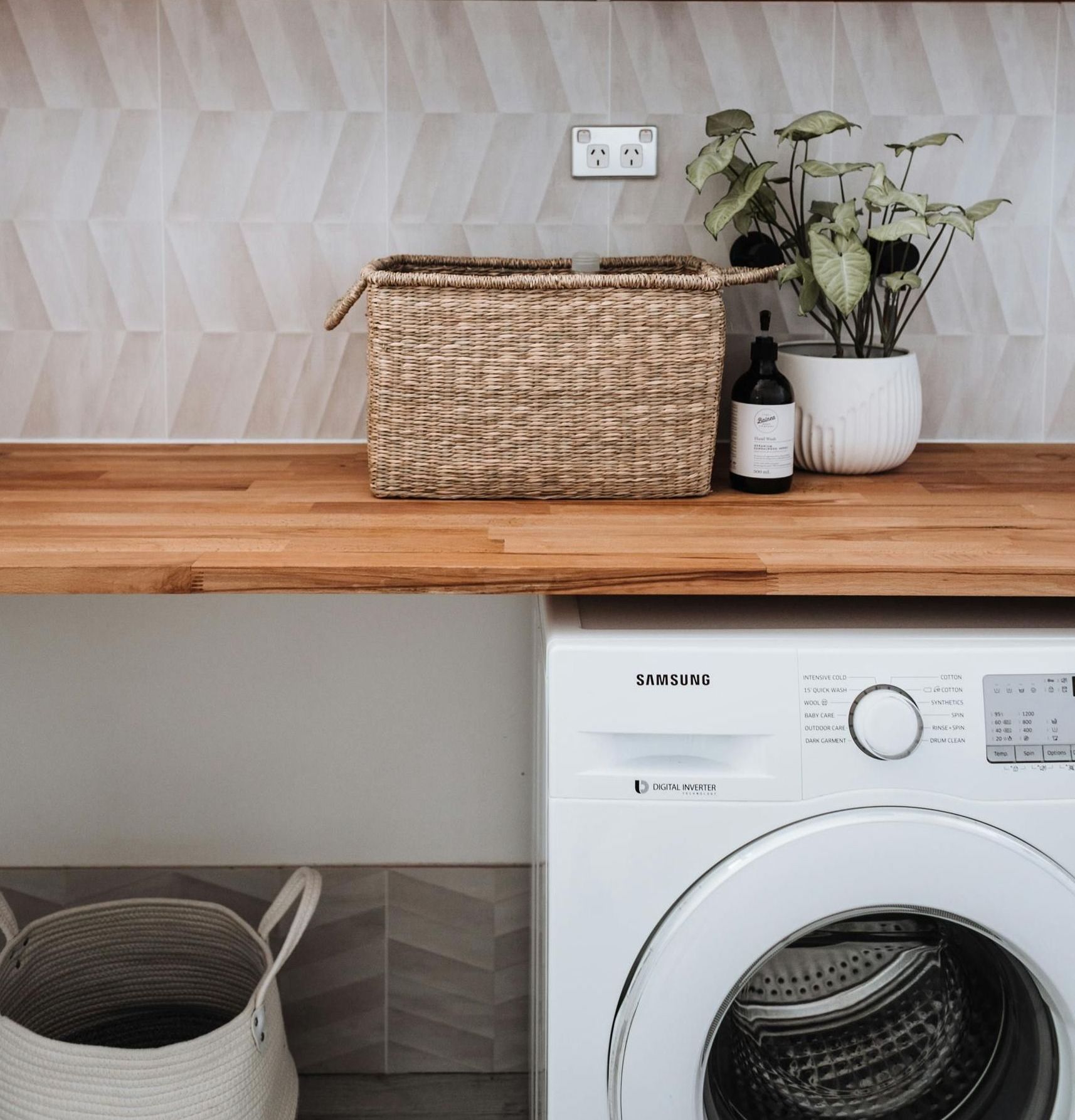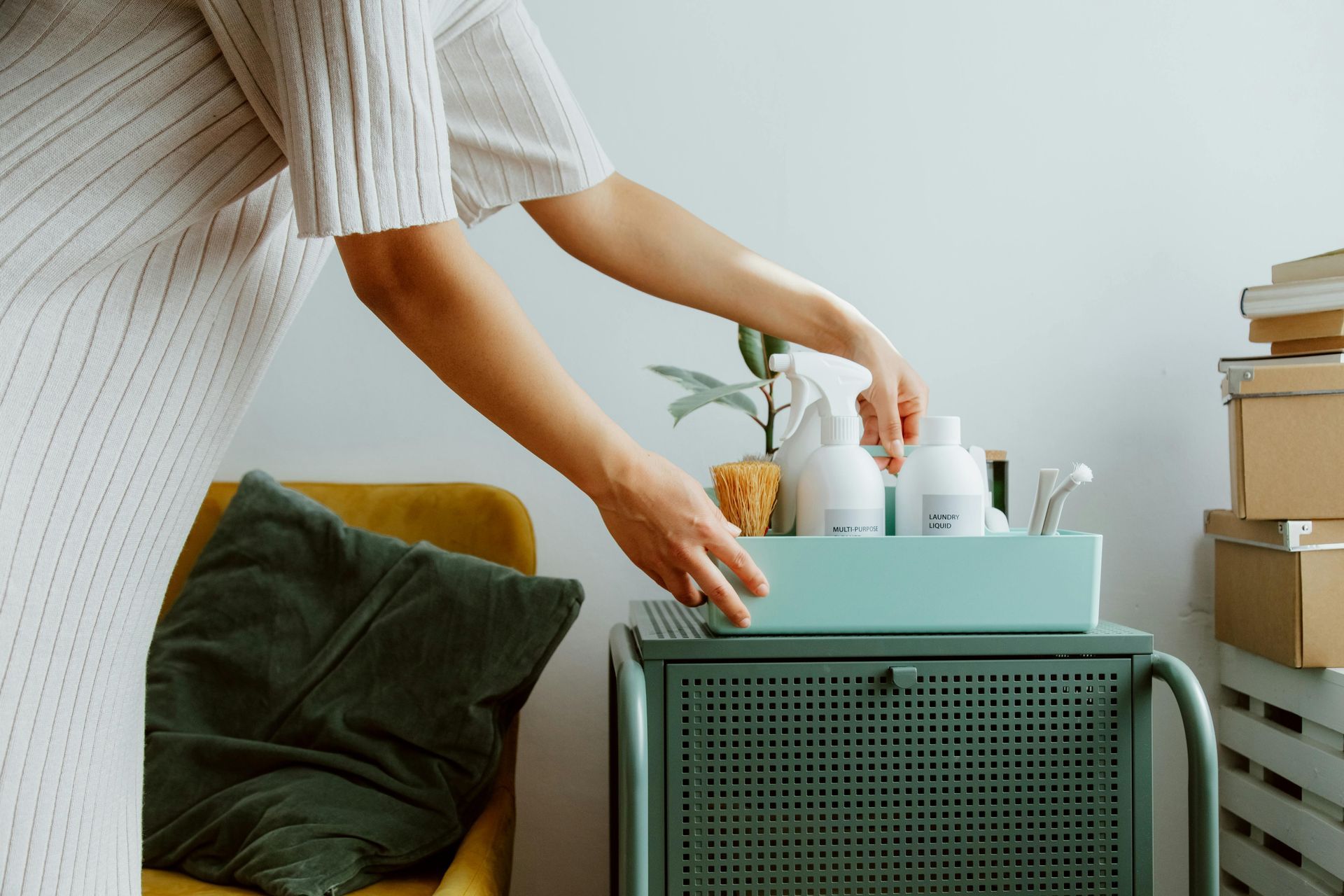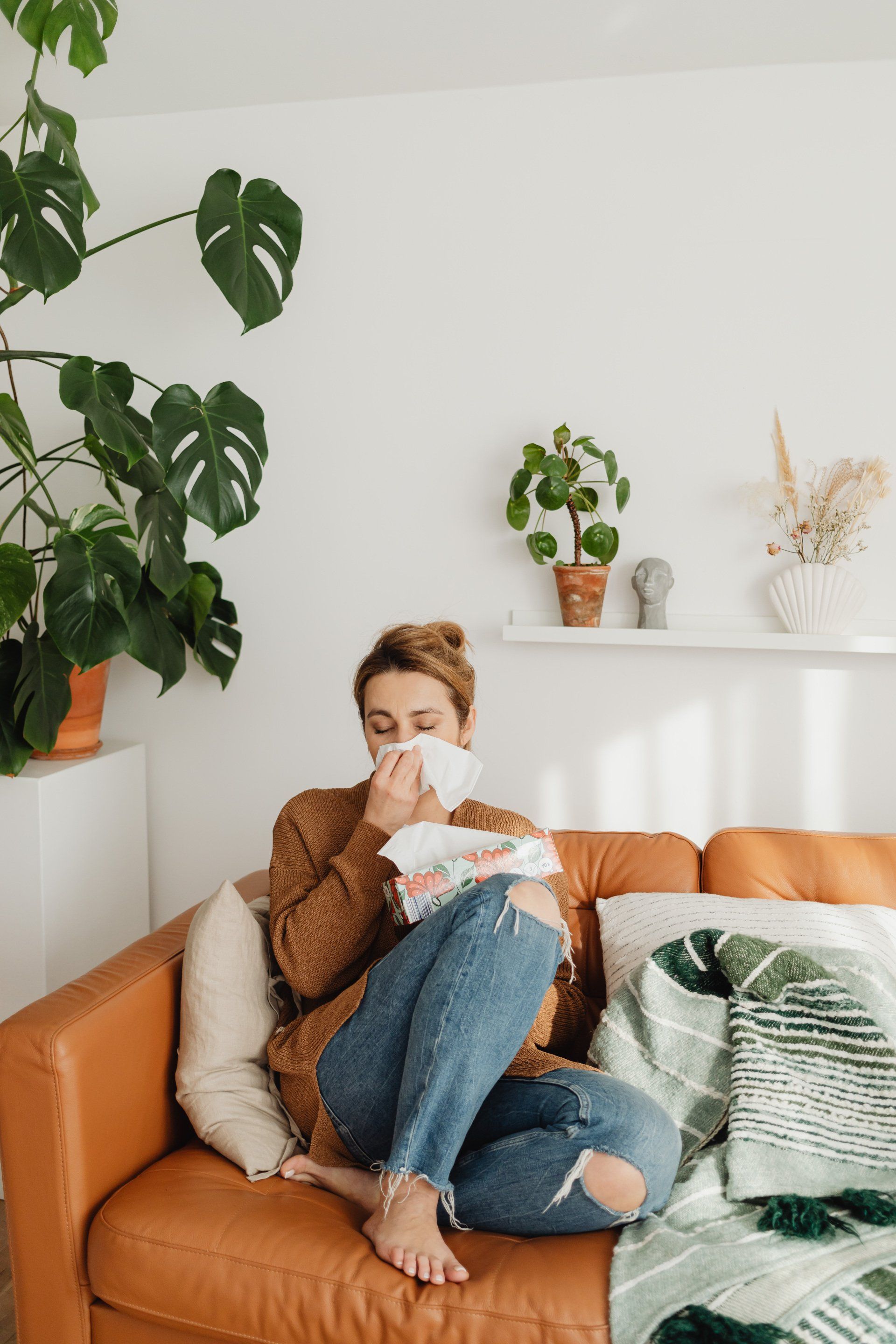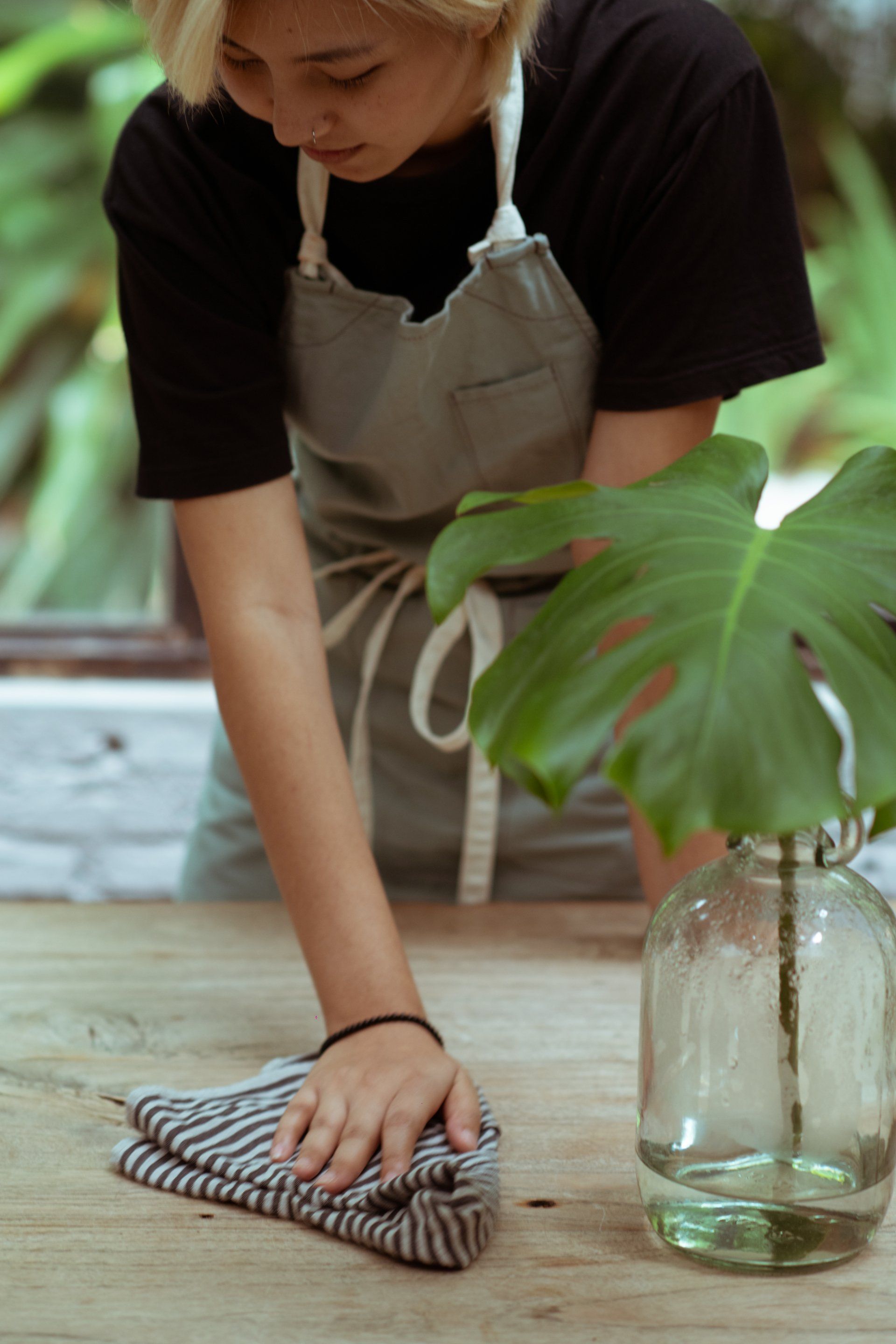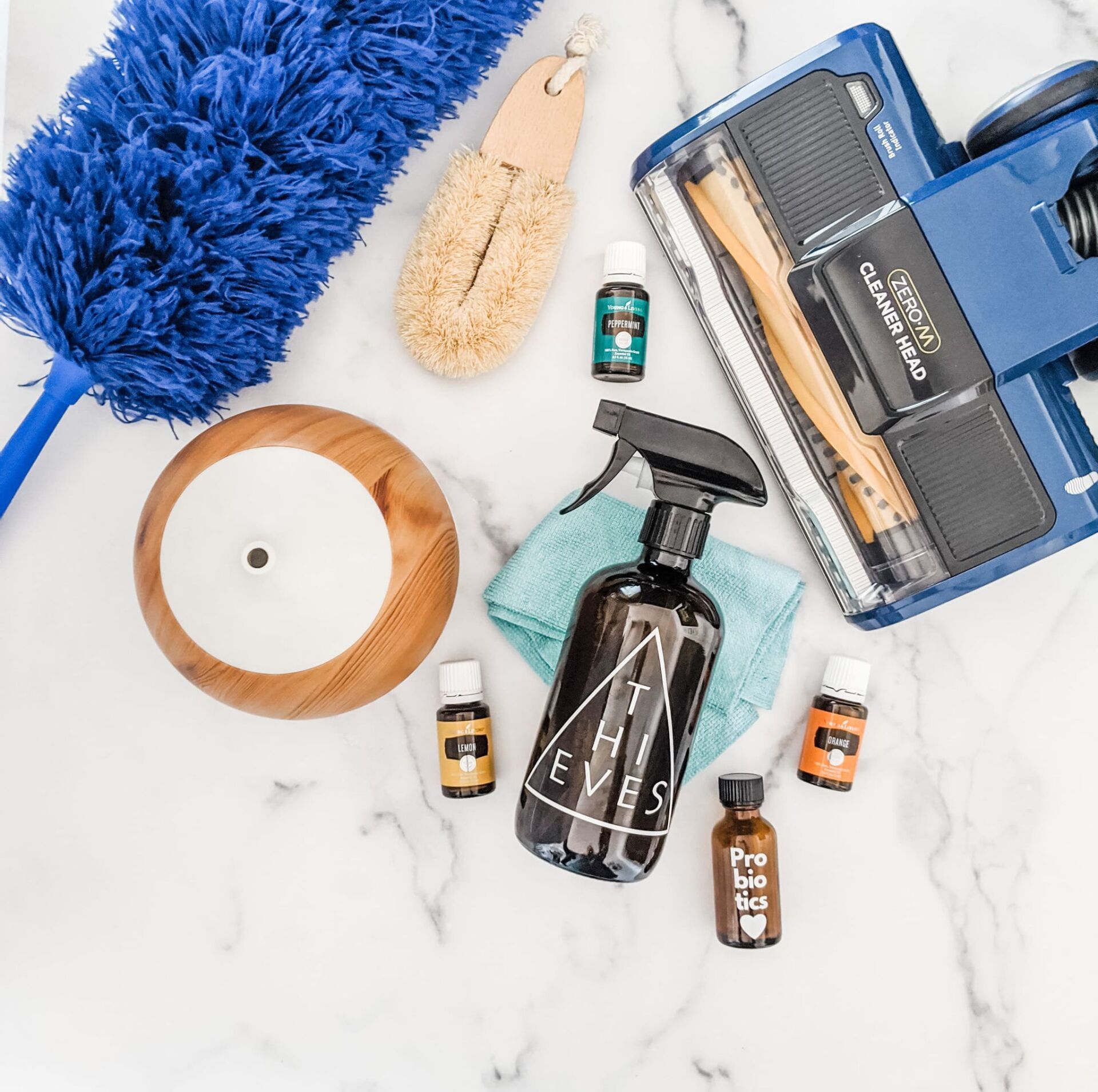Natural Pest Control
Keeping Your Home Bug-Free Naturally

When it comes to maintaining a clean and comfortable home, keeping pests at bay is essential. However, many conventional pest control products are loaded with harsh chemicals that can harm your family, pets, and the environment. Fortunately, there are natural, organic alternatives that effectively repel bugs without introducing toxins into your home. These methods are not only safer but also align with eco-friendly practices. Here's how to keep your home bug-free organically.
1. Essential Oils for Natural Repellents
Essential oils are a powerful and natural way to repel common household pests like ants, spiders, and mosquitoes. Many bugs are repelled by strong scents that we find pleasant, making essential oils a great choice for natural pest control.
- Peppermint Oil: Known to repel ants, spiders, and mice. Mix a few drops of peppermint oil with water and spray around entry points like windows, doors, and baseboards.
- Tea Tree Oil: Effective against mosquitoes, ants, and lice. Dilute with water and apply to areas where bugs are entering your home.
- Lavender Oil: Keeps mosquitoes and moths at bay. You can place sachets of dried lavender in closets or spray diluted lavender oil in rooms.
2. Diatomaceous Earth for Insect Control
Diatomaceous earth (DE) is a natural powder made from fossilized remains of tiny aquatic organisms. It's highly effective in controlling insects like ants, bedbugs, and cockroaches. DE works by dehydrating insects, but it's harmless to humans and pets.
- How to Use DE: Lightly dust DE around the perimeter of your home, in cracks, and around windowsills where insects might enter. Be sure to use food-grade DE, and avoid inhaling the dust while applying.
3. Vinegar Solutions for Ants and Flies
Vinegar is a versatile organic cleaning agent that also doubles as a natural insect repellent. Ants and flies, in particular, are deterred by the strong scent of vinegar.
- Ant Control: Mix equal parts vinegar and water and spray directly on ants or near entry points like windows and doorways. The vinegar disrupts their scent trails, which helps keep them from returning.
- Fly Repellent: To keep flies away from kitchen areas, leave a small dish of apple cider vinegar and a few drops of dish soap near food prep areas. The soap breaks the surface tension of the vinegar, trapping flies.
4. Herbs and Plants as Natural Repellents
Certain herbs and plants naturally repel insects and can be strategically placed around your home to deter pests. These plants not only add a fresh scent to your space but also serve as an eco-friendly solution for pest control.
- Basil: Repels mosquitoes and flies. Place basil plants near windows or in your kitchen to keep bugs away.
- Rosemary: Effective against mosquitoes and moths. Plant rosemary in pots near doorways or windows, or use dried rosemary in sachets to hang in closets.
- Marigolds: Keep mosquitoes, aphids, and other insects out of your garden by planting marigolds around the perimeter of your home.
5. DIY Natural Bug Sprays
Creating your own natural bug sprays is an easy and cost-effective way to keep your home pest-free. These sprays use simple, organic ingredients that are safe for your home and environment.
- Lemon and Eucalyptus Spray: Combine lemon juice, eucalyptus essential oil, and water in a spray bottle. This works well to deter mosquitoes and flies.
- Citrus Ant Spray: Ants dislike the smell of citrus. Mix water, lemon juice, and orange peels in a spray bottle, and apply it around entry points to keep ants from entering.
6. Natural Traps for Fruit Flies
Fruit flies can be a nuisance, especially in kitchens during warmer months. Organic traps can help you get rid of these tiny pests without using harmful chemicals.
- Apple Cider Vinegar Trap: Pour apple cider vinegar into a jar and cover it with plastic wrap. Poke small holes in the plastic to allow the flies to enter. They’ll be attracted to the vinegar but unable to escape.
- Wine Trap: Similar to the vinegar trap, you can leave a small amount of red wine in a glass. Fruit flies are drawn to the smell and will drown in the liquid.
7. Seal Cracks and Gaps
Prevention is key when it comes to pest control, and one of the most effective ways to prevent bugs from entering your home is to seal up cracks, gaps, and other entry points. Pests often find their way inside through tiny openings in windows, doors, and walls.
- Check for Gaps: Inspect areas like window screens, doors, and baseboards for small openings where bugs might enter. Use caulking or weatherstripping to seal these gaps and prevent insects from slipping inside.
- Screen Maintenance: Ensure that window screens are free of holes or tears. If needed, repair or replace them to block pests like flies and mosquitoes.
8. Cleanliness as a Natural Deterrent
A clean home is less inviting to pests. Bugs are often attracted to food crumbs, spills, and standing water, so keeping your living spaces tidy can help minimize their presence.
- Keep Counters Clean: Wipe down kitchen counters and sweep the floors regularly to remove food particles that could attract ants, roaches, and flies.
- Take Out the Trash: Dispose of garbage regularly, and make sure trash cans have tight-fitting lids to prevent pests from accessing food scraps.
- No Standing Water: Fix leaky pipes and ensure there’s no standing water in or around your home, as this attracts mosquitoes and other insects.
Natural pest control not only protects your home from bugs but also keeps harmful chemicals out of your living space. By using organic methods, you can maintain a bug-free home while safeguarding your family’s health and contributing to a cleaner environment.
In the Dallas-Fort Worth area? Organically Maid cleaning services can help keep your home or office sparkling naturally with organic and non-toxic cleaners and can save you time and energy! Contact us today for a free estimate.
The recommendations and recipes provided on the Organically Maid Blog are intended for informational purposes only. Please use caution and consult with a professional if you have any concerns or allergies. Organically Maid is not liable for any adverse effects or damages that may result from following the recommendations or recipes shared on this blog. Always follow manufacturer's recommendations and proceed at your own risk.
Blog
